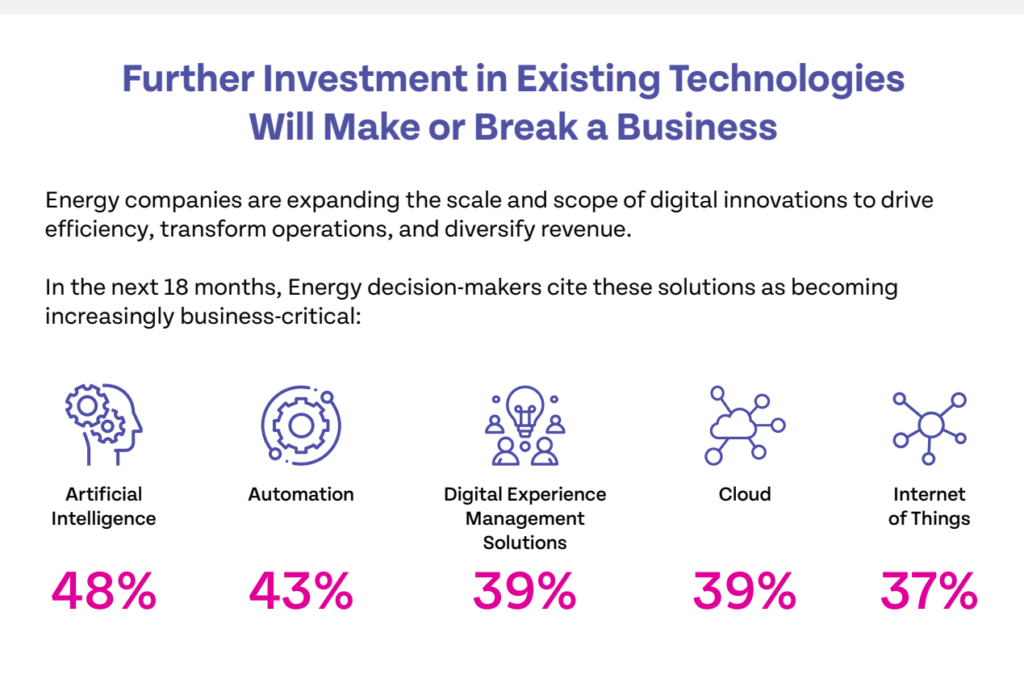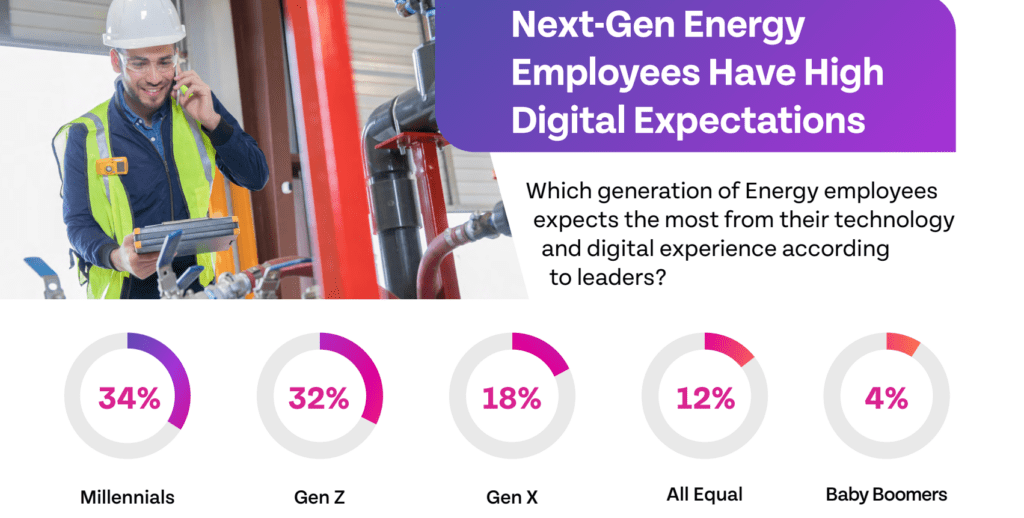
The majority of energy leaders surveyed believe they will need to deliver more advanced digital experiences (DEX) in the next five years as new generations enter the workforce, according to research platform Riverbed.
In their Riverbed Global Digital Employee Experience (DEX) Survey 2023, 85% of the energy leaders surveyed said they need to deliver DEX to attract newer generations into the sector.
The survey polled 1,800 global IT decision-makers (ITDMs) and business decision-makers (BDMs) across 10 countries and seven industries, including 100 Energy and Utilities leaders.
It was conducted by Sapio Research in May 2023 to explore generational expectations, hybrid work, the evolving role of IT, and challenges and strategies to delivering an exceptional digital employee experience.
Around 93% of the survey respondents agreed that providing a seamless DEX is crucial to remaining competitive, at a time when energy companies are shifting toward renewable energy sources and increasing digital transformation and sustainability initiatives.

Energy Decision-Makers Look to DEX to Retain Staff
In particular, 85% of Energy leaders surveyed believe they will need to deliver more advanced digital experiences for new generations in the next five years. Meanwhile, 65% say failing to do so could impact the company’s reputation and be disruptive.
Around 66% of the survey respondents say that Millennial and Gen Z employees would consider leaving the company if their digital needs are not met.
98% of Energy decision-makers surveyed cite at least one major obstacle or gap – such as delivering seamless digital experiences to their workforce and customer demand.
Some of the obstacles include inadequate observability tools, talent shortage or lack of skilled personnel, and lack of appropriate cloud services and SaaS apps.
Additionally, 83% say slow-running systems and applications and outdated technology are directly impacting the growth and performance of their organization, while others are being hamstrung by staffing concerns.
43% believe they are understaffed, and 34% have enough employees; however, those employees lack the fundamental skills to do their jobs.
The survey shows that 76% of those employees lacking the correct skills have set aside to retrain people.
